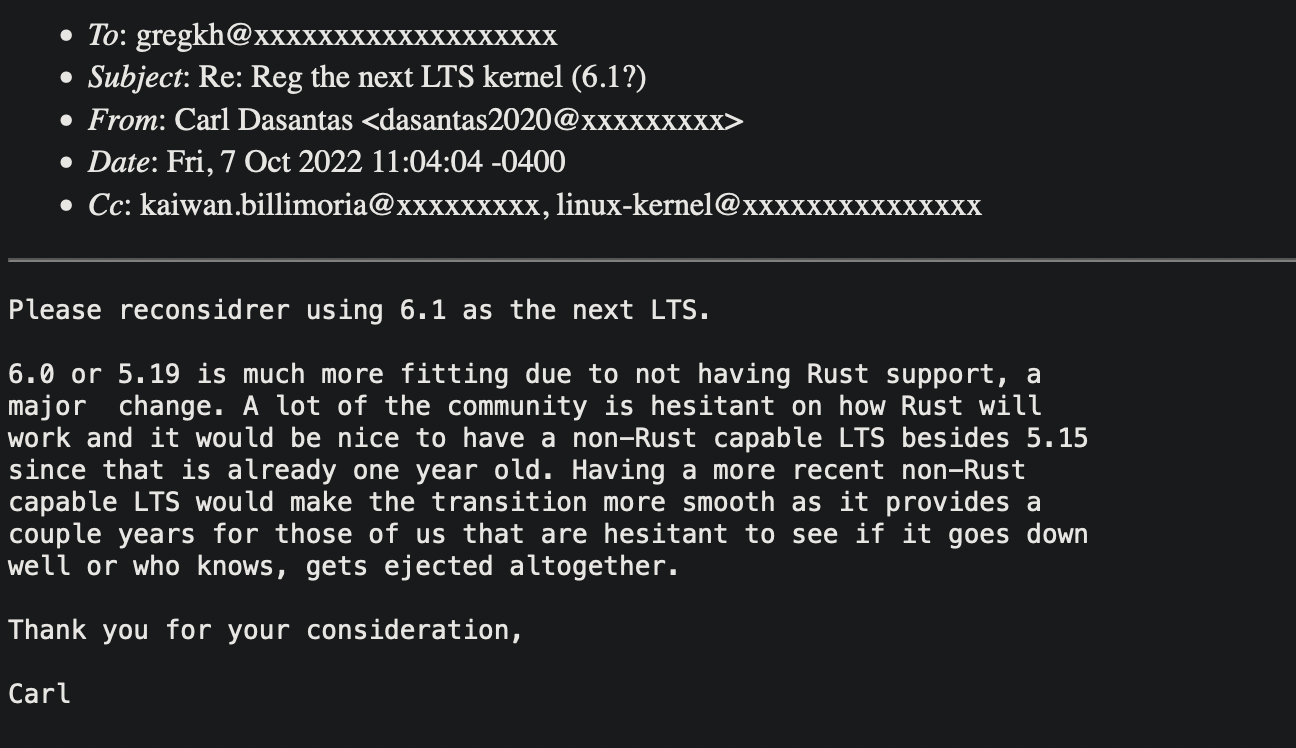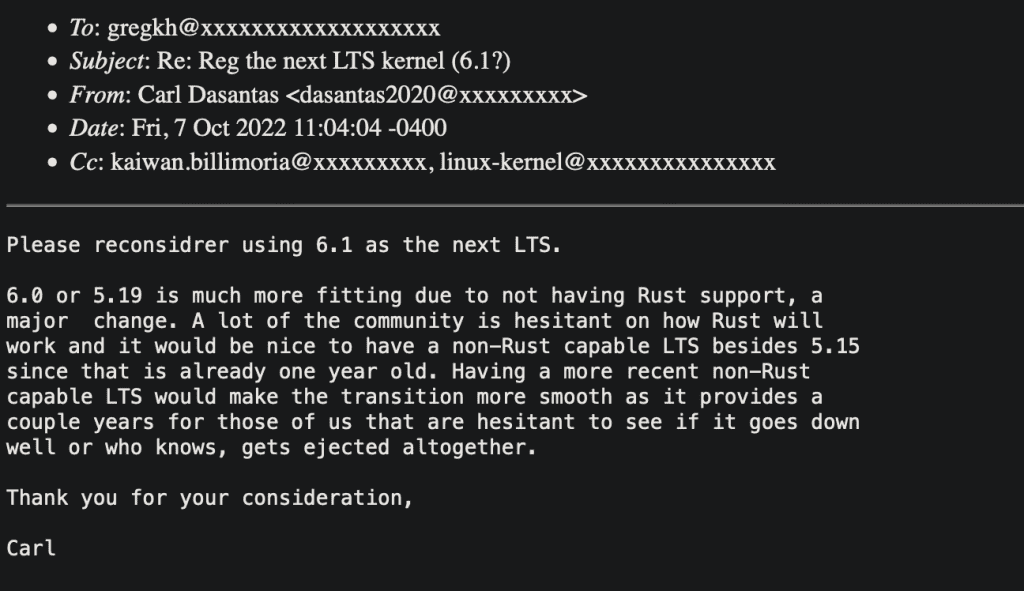Linux 6.0 was officially released earlier this week. Given that Linux has an LTS version released every year, many people are currently speculating whether this year’s LTS version is the already released 6.0 or the 6.1 planned for December this year.
According to current Linux maintainer Greg Kroah-Hartman, Linux 6.1 is more likely to be this year’s LTS release.
Greg Kroah-Hartman stated:
I usually choose the last kernel of the year, and according to the normal release cycle, Linux 6.1 will be that kernel version. However, I can’t promise anything until it’s released.
According to the normal schedule, Linux 6.1-rc1 will be released on October 16, while the Linux 6.1 stable release may be around December 4 or 11. Therefore, unless there are some unexpected circumstances in the development of Linux 6.1 that prevent it from being launched on time, Linux 6.1 will be officially launched this year, and according to the traditional Linux 6.1 will become the next annual LTS release.
The latest LTS version is Linux 5.15 LTS released in October last year, and the EOL date is October 2023. If Linux 6.1 becomes an LTS release, its EOL date will be December 2025. However, the maintenance cycles of previous LTS versions have been extended, and it stands to reason that the maintenance cycles of Linux 5.15 and 6.1 will also be extended in the future.
However, not everyone agrees with Greg Kroah-Hartman. On the kernel mailing list, Carl Dasantas put forward a different view, saying:

Since there is no Rust support, 6.0 or 5.19 are more suitable as LTS releases. A lot of the community is hesitant about Rust, and it would be nice to have an LTS other than 5.15 that doesn’t support Rust. This could make the LTS transition a lot smoother and also allow those of us who are hesitant about Rust to see if Rust can go well.
#Linux #track #LTS #kernel #release #year
